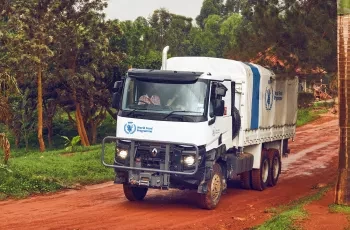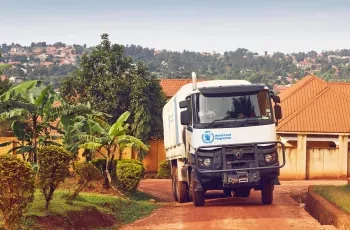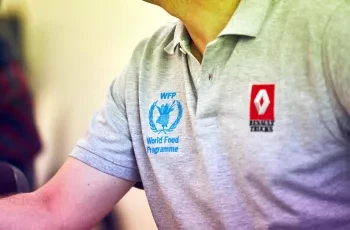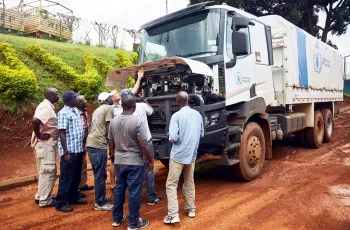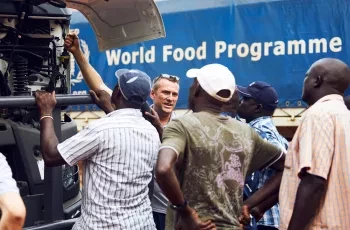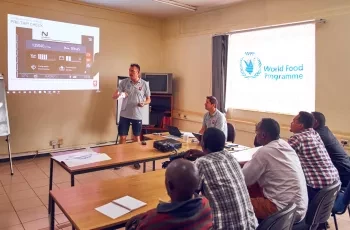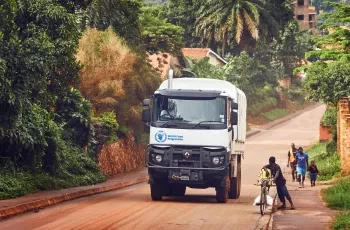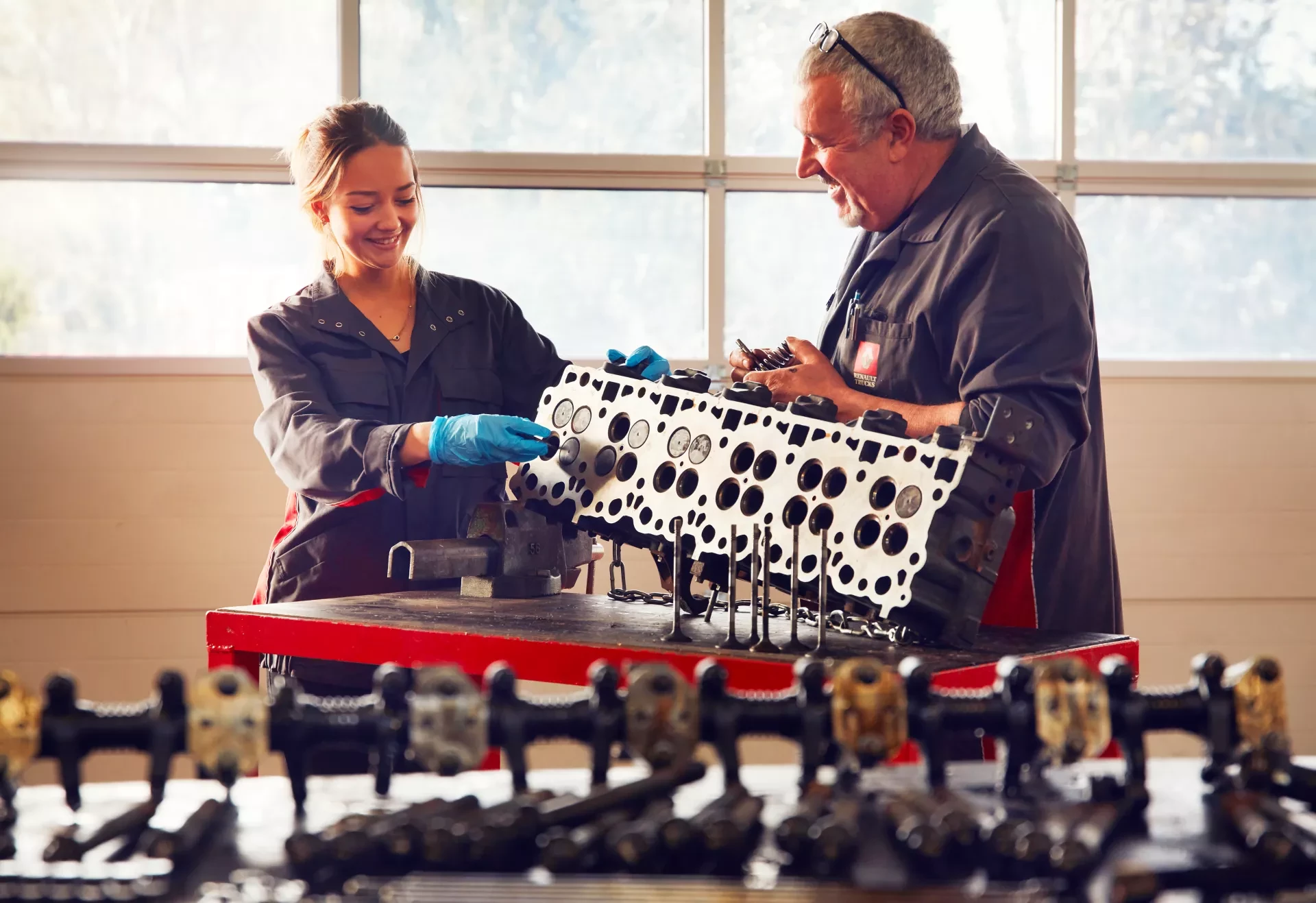Renault Trucks Helping Shape Humanitarian Logistics with the World Food Programme since 2012
Renault Trucks supports WFP with its expertise to strengthen the efficiency of humanitarian logistics
Trucks are essential for emergency humanitarian aid. Delivering food to remote areas is a daily challenge.
The World Food Programme (WFP) is the world’s largest humanitarian organization fighting hunger, providing food assistance in emergencies and working with communities to improve nutrition and build resilience. Awarded the Nobel Peace Prize in 2020 for its commitment to combating global hunger, WFP reached 120 million people in over 120 countries with life-saving, life-changing food and other assistance in 2024 alone.
Trucks are an instrumental element of WFP’s humanitarian logistical system, enabling the delivery of aid to people in emergency situations and transporting food under the some of the most extreme conditions.
Renault Trucks is committed to supporting WFP’s truck fleet performance by training drivers, fleet managers, and mechanics who ensure the vehicles are properly maintained every day.
Renault Trucks has implemented 3 support programs to assist the World Food Programme
Deployment of two mobile training units in the field
Beginning in 2012, Renault Trucks provided WFP with two Kerax 6x6 trucks configured as mobile training units to address training needs of the humanitarian agency’s technical teams in the field. These mobile training trucks are designed to replicate a workshop environment, enabling learners to put their theoretical knowledge into practice. They are equipped with an engine mounted at chest height, providing an immersive and hands-on training experience directly aligned with real-world technical challenges.
Through this initiative, Renault Trucks has helped to develop the skills of WFP’s local teams and improve vehicle maintenance, which is vital for delivering food aid to the most vulnerable populations. The two mobile training units are now positioned in Accra, Ghana, to address training needs in the region for the Transport Training Centre.
Training for better transport: sessions in 12 African countries
Each year, Renault Trucks employees volunteer to support different WFP Country Offices across Africa to train local teams in vehicle maintenance, workshop management, and fleet operations. These training sessions aim to help WFP improve the condition and therefore the availability of its trucks.
Renault Trucks invites its most experienced employees to share their expertise in the field with WFP teams.
Since the program’s launch, 35 Renault Trucks employees have trained over 350 people in 12 African countries. In addition, mechanic workshops and trainings were also conducted in Dubai,one of WFP’s Global Fleet hub, and at Renault Trucks headquarters in Lyon, where Renault Trucks staff delivered a training for WFP fleet managers. The results are tangible:
“Vehicle maintenance costs have been cut in half in some areas thanks to preventive maintenance.” - Jean-François Milhaud, Global Fleet Coordinator, World Food Programme
Building a world-class transport training center for East and West Africa
In 2022, Renault Trucks furtherted its commitment by partnering with other international companies in the creation of a transport training centre in Accra, Ghana. This unprecedented WFP initiative strengthens transport and logistics capabilities across East and West Africa by providing local markets with new skills to improve the distribution of essential goods such as food and medicine.
Together with key industry players like Carrier and Toyota Tsusho Corporation, Renault Trucks is providing financial and material support for the construction and operation of this center, which has reached over 500 people from 26 countries.
The Accra centre offers training modules on best practices in road transport, fleet management, and the safe transport of temperature-sensitive goods, among others. These trainings target humanitarian organization staff, government representatives, and professionals from the local private sector.
By contributing to youth and women’s employment and skills development, the WFP Transport Training Centre in Accra is also driving positive social, economic, and environmental impact across the region and beyond.
WFP does not endorse any product or service.
- 100 million people supplied with food every year
- 15 billion rations distributed each year
- 3 million tonnes of food purchased each year
- Presence in 88 countries
- 650 warehouses
- 30 ships
- 100 aircraft
- 5,000 trucks


